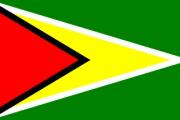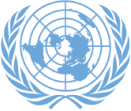Statement by the Honourable Ms. Valerie Garrido-Lowe, M.P., Minister within the Ministry of Indigenous Peoples’ Affairs at the Sixteenth Session of the United Nations Permanent Forum on Indigenous issues (UNPFII), United Nations, April 24, 2017.
Madam Chair I am privileged to address this forum for the first time, and wish to offer heartiest congratulations to you on your election to chair this the16th Session of the United Nations Permanent Forum on Indigenous Issues. My delegation is confident that under your stewardship, this session will achieve the objectives for which we have gathered here. I also offer my congratulations to the other members of the Bureau on their election and pledge my delegation’s full support to you in the fulfillment of your mandate. Madam Chair, As we observe the 10th Anniversary of the United Nations Declaration on the Rights of Indigenous Peoples, my delegation is pleased to contribute to today’s discussion as we reflect on the measures taken to implement the Declaration. The Government of Guyana has made significant steps in this regard and we will continue to work assiduously towards full implementation of the Declaration. I will highlight a few of the major initiatives that we are undertaking.
Madam Chair Article 3 of the Declaration on the Rights of Indigenous Peoples, states that “Indigenous Peoples have the right to self-determination and by virtue of that right they freely determine their political status and freely pursue their economic, social and cultural development.” In our efforts to ensure that our Indigenous Peoples remain the owners of their development, the Government of Guyana implements an ambitious programme whereby funds are released to the indigenous communities across the ten administrative regions of Guyana to execute Community Development Projects. The funds released to these communities are garnered both from our collaboration with the Government of Norway in the area of climate change as well from provisions in our annual budget. In 2016, the Indigenous communities received additional developmental funds termed the “Jubilee Grants” on the occasion of our 50th anniversary of Independence.
The underlying objective of these Community Development Projects is to promote the sustainable economic growth of the indigenous communities and we have seen the emergence of several viable projects in the areas of agriculture and ecotourism, among others. Given the particular success of a number of these projects and following consultations with the communities involved, we have replicated these projects in other parts of the country. I wish to underscore here that the principle of FREE, PRIOR AND INFORMED CONSENT is always upheld and the Government is always keen to ensure that consultations are held with residents of the communities and that consensus is reached before residents proceed to design their projects.
I wish to note as well that given the “green” development pathway that my Government is pursuing, Community Development Projects must be environmentally sound and should also conform to the objectives that we have set out to achieve in Agenda 2030.
Madam Chair In the spirit of the Declaration and in keeping with our constitutional obligations, the Government of Guyana has taken steps to honour the Indigenous Peoples’ right to the protection, preservation and promulgation of their languages, cultural heritage and way of life. It is a source of pride for my Government that the languages of the nine nations of our Indigenous Peoples remain intact and are fluently spoken by both children and adults. In order to ensure the preservation of these languages, the Ministry of Education is currently reviewing its curriculum to include these languages. Further, in communities where it is apparent that the language might be under threat of extinction, Language Revival Projects have been rolled out. We recognize it as our duty to preserve all of our indigenous languages as these are an inherent part of our identity. Consistent with this, the Government of Guyana is working towards having radio stations operational in all indigenous communities and has already commissioned two such stations in 2016. This initiative is also critical in bridging the gap between indigenous communities and those on the coast and we are convinced that this will go towards promoting tolerance, understanding and good relations among indigenous peoples and the other segments of society.
Madam Chair, Each year our National Budget provides the necessary financial support to ensure that the importance of our indigenous culture is highlighted. The entire month of September is designated for cultural activities to showcase the rich customs and traditions of our First Peoples and activities are held throughout the length and breadth of Guyana giving the entire population an opportunity to reflect on the contributions that the Indigenous Peoples made and continue to make towards our country’s development.
Madam Chair, I wish to state that there are several challenges that we must treat with as we work towards the full implementation of the Declaration. These include, but are not limited to, the difficulty in accessing some of these locations, limited capacity in some cases, as well as the lack of continuity in some instances. The Government of Guyana, nonetheless, remains fully committed to implementing necessary measures to address these challenges so that we can fully promote the rights and wellbeing of our Indigenous Peoples.
As I conclude, my delegation reiterates its support to you and the Bureau as you facilitate the work of this 16th Session and express our continued support for the full implementation of the United Nations Declaration on the Rights of Indigenous Peoples.
I thank you.


